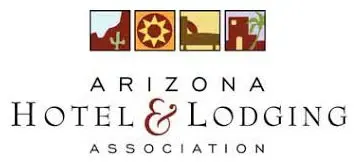Did you know that one female mouse is capable of having up to 35 pups in a single year? That’s right, the rapid reproduction rate of mice is one of the main reasons why homes often experience recurring mice infestations. But why does it happen? Understanding the factors behind sudden mice infestations is crucial for effective prevention and control.
Did you know that termite infestations affect millions of homes in the United States each year? These hidden pests are responsible for causing significant damage to structures, leading to costly repairs and potential safety hazards.
Knowing when scorpions are most active can help you stay safe and take necessary precautions. In this article, we will explore the peak season for scorpions in Arizona and provide essential tips to protect yourself and your family.
There’s a huge difference between having just one or two of them in your home and dealing with a fly infestation. No matter whether it’s common houseflies, fruit flies or biting flies—all of them can cause a major headache to homeowners.
Bee removal prices vary widely. The average job will cost between $75 and $150, while more involved bee hive removal jobs can cost anywhere from $1,000 to $2,000.
Homeowners in Arizona need to know about termite extermination prices. The average cost for treating a 2,500 sq.ft. home is between $320 and $1,260. Most homeowners pay around $540 for liquid treatment.
If you are concerned about the safety of bees and have tried relocating them to another location, this article will help you get rid of them without using chemicals.
Bat bugs and the common bed bug appear to have very similar physical characteristics to the naked eye; however, under a microscope, bat bugs appear to have longer hairs that are longer than the width of their eyes.
Protecting your property from these dangerous pests is crucial, but you may be wondering about the cost to spray for scorpions. In this article, we will uncover the expenses involved in Arizona scorpion control and provide insights to help you make an informed decision.
Understanding termite fumigation risks and safety steps can be tough. How long should you wait before going back inside? And what makes your home safe again?
Rats are nocturnal creatures that search for food at night. They chew and nibble on all kinds of materials in your home, damaging electrical wires, doors and window frames as well as burrowing into foundations of buildings, tearing up insulation in walls and ceilings to create nests for their young.
If you’re a homeowner in Arizona, you’re likely aware of the threat that termites pose to your property. These small, wood-eating insects can cause thousands of dollars in structural damage, making termite prevention a top priority for many Arizona residents.
There are approximately 56 species of scorpions in Arizona. All scorpions sting (they do not bite) and inject venom, but only one scorpion in the United States is classified as potentially deadly: the Arizona Bark scorpion – how fortunate for us.
Pantry pests are very common across Arizona and have been impacting thousands of families and businesses. Learn how to identify some of the most common pantry pests and learn more about them!
Arizona sees a lot of termite damage, with some of the highest rates in the country. Termites are called “silent destroyers” because they can damage a home’s structure without anyone noticing until it’s too late.





